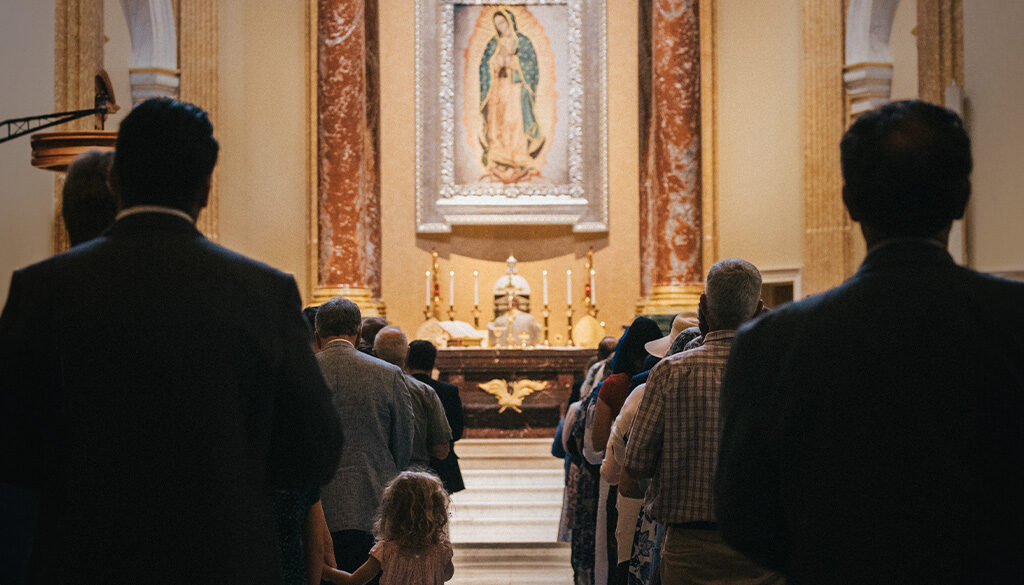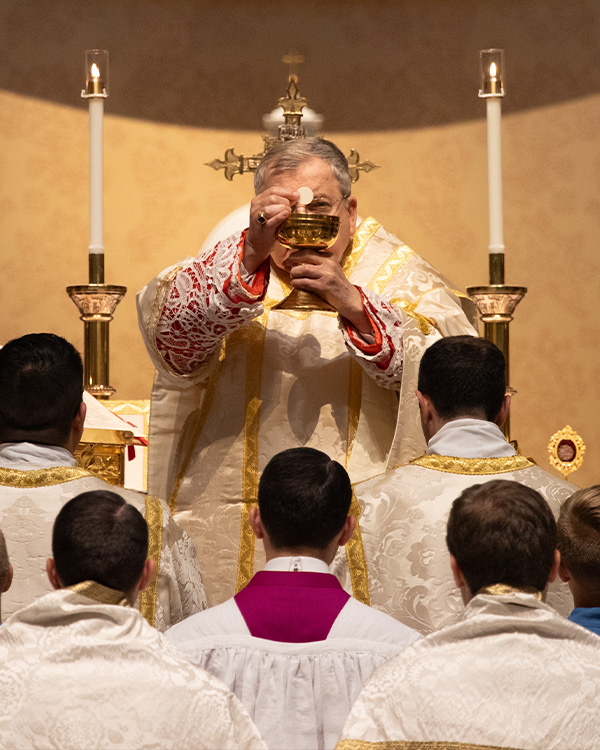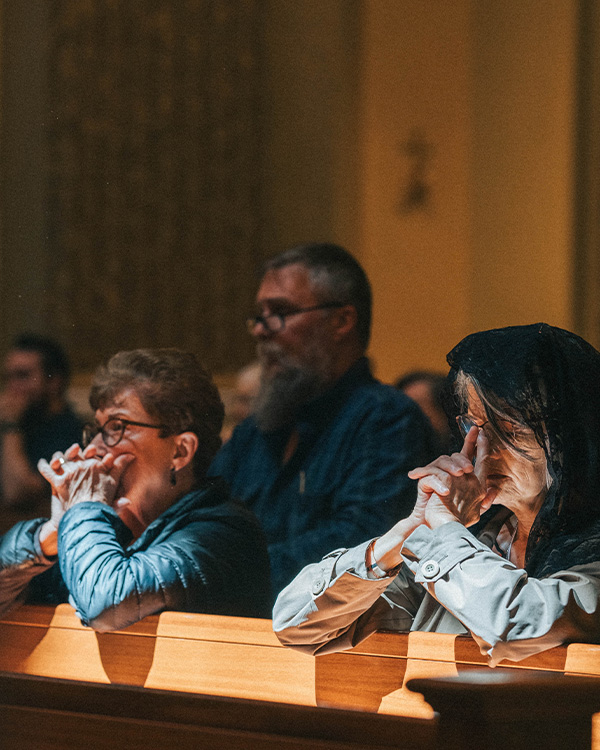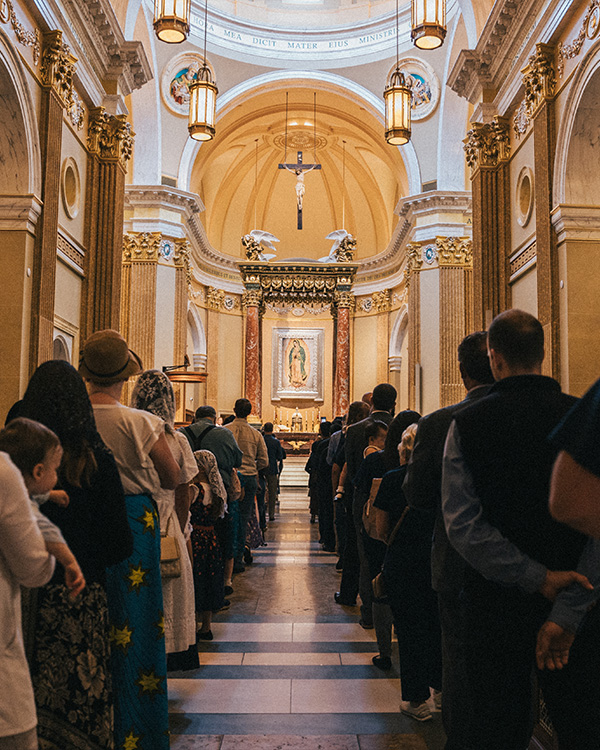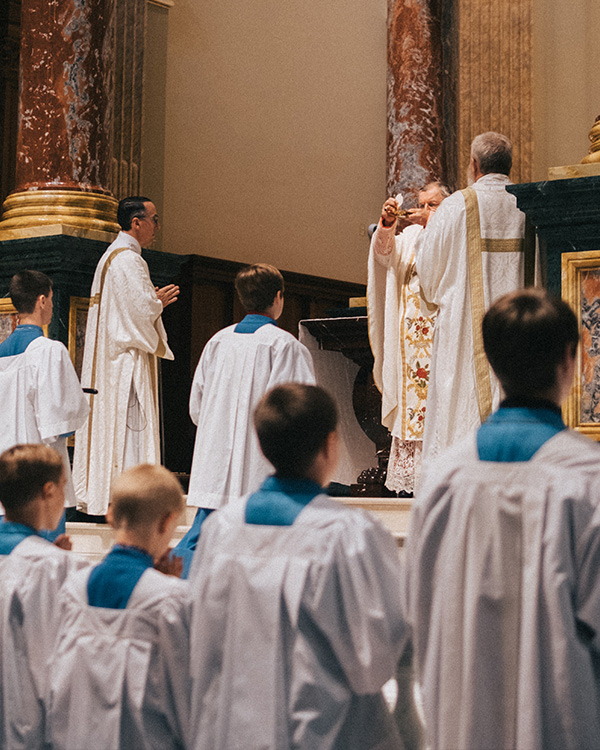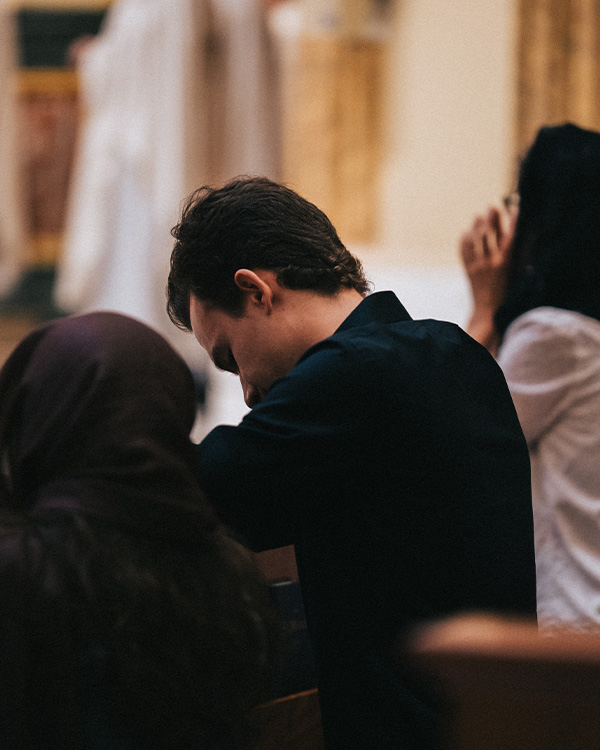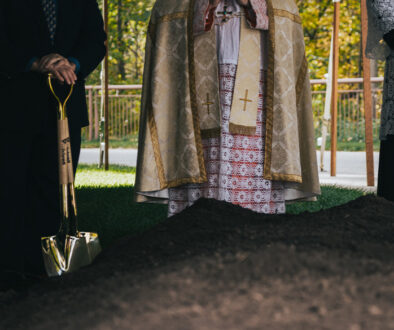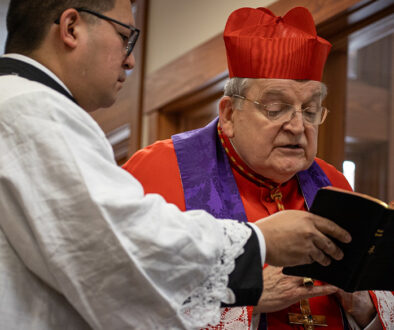Preparing Ourselves to Receive the Eucharist
The Blessed Sacrament of the Eucharist is the “source and summit” (Catechism §1324) of the Church’s life, and also of life at the Shrine of Our Lady of Guadalupe. A good deal of the Shrine’s mission consists in the availability and beauty of the Sacred Liturgy, the Holy Mass. The encounter with Our Lord, which makes the essence of the pilgrimage experience, takes place above all in receiving Holy Communion. If the receiving of Jesus in the Eucharist is such an important moment, how can one best prepare for this great moment?
Approaching the Sacrament
The saints offer plenty of advice and examples. One detailed instance comes from the classic Introduction to the Devout Life by St. Francis de Sales. St. Francis encourages readers to approach the Sacrament with both deep reverence and profound joy. “Begin your preparation for Holy Communion on the evening before by many loving aspirations,” the saint advises. “In the morning get up with great joy. … Having made your confession, go with great confidence and with great humility to receive this heavenly food which nourishes you for everlasting life.”
Distractions
Even the best preparation does not necessarily mean profound feelings or freedom from distraction. St. Thérèse of Lisieux admitted that her prayer before Communion “does not prevent both distractions and sleepiness from visiting me,” but rather than be discouraged, she would go on being thankful all through the day. Her method of preparing, fittingly for her simple, trustful spirituality, involved calling on the help of her heavenly family:
I picture my soul as a piece of land and I beg the Blessed Virgin to remove from it any rubbish that would prevent it from being free; then I ask her to set up a huge tent worthy of heaven, adorning it with her own jewelry; finally, I invite all the angels and saints to come and conduct a magnificent concert there. It seems to me that when Jesus descends into my heart He is content to find Himself so well received and I, too, am content.
Preparing Hearts
This confidence in Our Lady and the saints continues to help people prepare their hearts for the Lord’s coming. Mary Clare Kelly, Monthly Giving Manager at the Shrine, speaks of a practice that helps her just before receiving: “while walking down the aisle at the time of Holy Communion, to ask Our Lady to be with me and, in a way, to receive Jesus in me and for me. … If she is in me, with me, when I receive Our Lord, then, I tell Him, I can receive Him perfectly.”
Worthiness to Receive Him
Mary Clare also finds help in preparing by paying close attention to the readings and prayers of Mass, especially the prayer beginning “Lord, I am not worthy…” In the spirit of “great confidence and great humility” described by St. Francis de Sales, she explains, “I try to be very intentional in how sincerely I speak these words to Jesus … acknowledging freely that He is the only one who makes me worthy, and who is the source of my healing and life in Him.”
St. Faustina’s Preparations
The experience of this preparation is likely to be different from one day to another as circumstances vary. St. Faustina, messenger of Divine Mercy, devoted the last few pages of her diary to her preparation for Holy Communion on different days. One day she writes, “Today, my preparation for the coming of Jesus is brief, but imprinted deeply with vehement love.” Other days are very different. One entry reads, “I cannot think of anything, though I feel many things. … I throw myself in His arms and tell him about my inability and my misery.” A third day is hard in another way: “Temptations and distractions torment me and do not let me prepare for the coming of the Lord. Therefore I desire even more ardently to receive You, Lord.” No difficulty discouraged her from going to Communion, but only made her long more for the One she needed.
Give Your Heart to Jesus
Blessed Honoratus Kozminski had a concise saying on preparing for Communion: “If you ask me what preparation you should do before receiving Holy Communion, I will answer: give your hearts to Jesus.” This advice brings together all the various forms of preparation, whether a person’s prayer is more or less structured, or whether one finds it easier or harder to pray on a given day. If sincere love for the One to be received is the guiding principle, everything else that may be needed will, by His grace, follow.
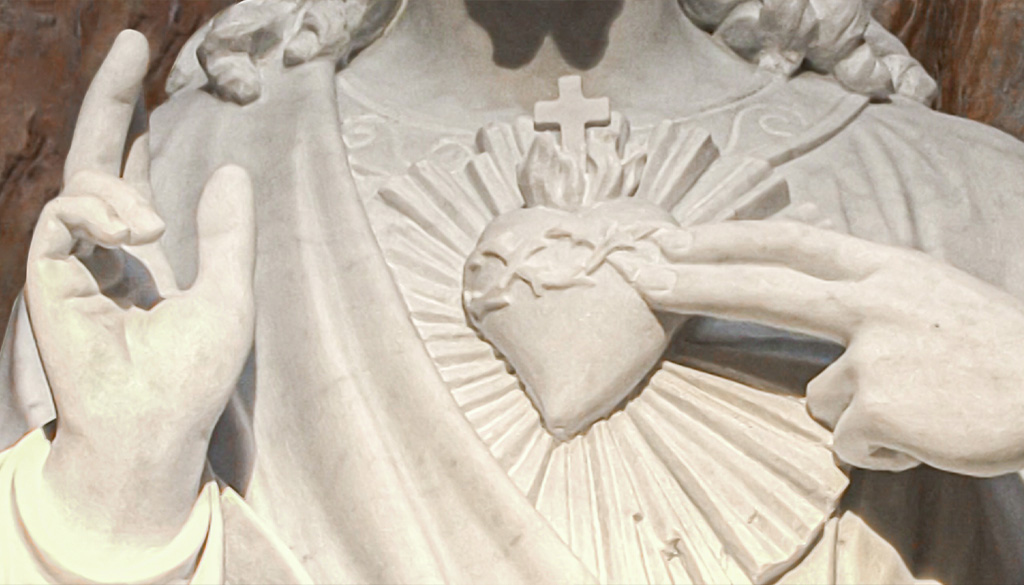
Books on the Reception of the Holy Eucharist
His Eminence unpacks in a clear, concise way the history and significance of the Catholic Church’s long-held teaching regarding who is worthy to receive Holy Communion, and who is not. Referencing writings of Church Fathers, Pope St. John Paul II, numerous saints, the Catechism of the Catholic Church, and Scripture itself, Cardinal Burke cogently expresses the continuity of what Pope Benedict XVI referred to as a “perennial Church teaching.”

